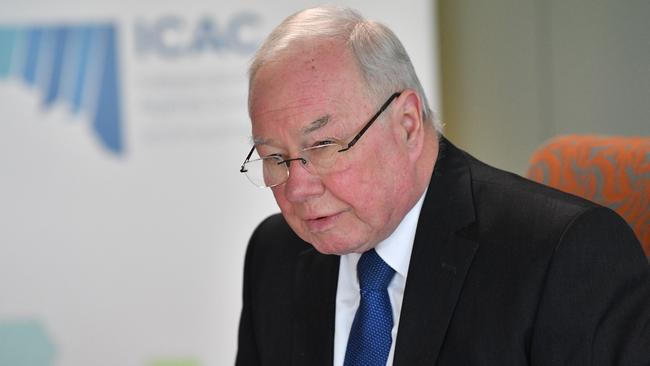Daniel Wills: Sunlight is all that’s needed to tell if SA’s Independent Commission Against Corruption watchdog is really off the leash
A FIGHT on whether the powerful ICAC is abusing its powers behind closed doors could have been avoided if it just held open hearings from the start, State Political Editor Daniel Wills writes.
A DELICIOUS irony surrounds the inquiry State Parliament is running into SA’s frequently mysterious Independent Commission Against Corruption, as MPs probe how its extraordinary powers are used behind closed doors.
In moments of great theatre, SA’s top silk, Michael Abbott, this week told the committee that the ICAC runs as a “star chamber” and conducts “nothing less than a trial by ambush”.
He was also critical of ICAC boss Bruce Lander’s “power to make his own rules”, which could be abused to select witnesses and design an environment where only facts that “fit in with his agenda” are uncovered.
Other less public critics of the ICAC have felt that it is either too hasty in picking and condemning certain targets, or lax in not making certain findings given the exposed evidence.
Given the extraordinary powers and financial resources granted to the ICAC, it is only reasonable that the way in which it chooses to exercise them are exposed to regular review and scrutiny.
It also seems an unavoidable conclusion that this would best have been done by permitting or even requiring the ICAC to hold regular public hearings from the very beginning.
When viewed from the helicopter, the nature and need for this inquiry run by MPs starts to look a little absurd.
Had the ICAC been open from the start, everyone from MPs and lawyers to the average voter in Adelaide would have been able to see for themselves how the joint is being run.
If it were true that Mr Lander was stacking the deck to achieve a certain outcome, this would have become apparent to anyone who took the interest to watch and read the coverage.
If his own performance or the powers allocated to him were producing a result not in the public interest, there would be a movement for change and MPs elected by the public could take action on that in the Parliament.

Similarly, if Mr Lander were a soft touch or lacking the tools needed to get the information required to come to a forceful conclusion, that would be seen by everyone and change demanded.
Instead, we have MPs who have been or could be prime targets of ICAC inquiries seeking evidence from people who have been in the room and producing a second-hand account of what could just be exposed for all to see.
It’s a snapshot of a photocopy, instead of the genuine article.
When former premier Jay Weatherill announced he would establish an ICAC, it was pitched and interpreted as a major reversal from the staunch opposition of his predecessor and evidence that he would lead a new regime committed to accountability.
But he was similarly staunch in opposing open ICAC hearings, and argued reputations could be so trashed by the mere levelling of an accusation that no amount of contrary evidence could ever right that wrong.
In pure political terms, it also meant his government was not having to face a daily drip feed of news stories that had its own people in the dock under questioning and cross-examination. Instead, it could hope to keep any negative findings to a few days of bad news once a full report finally went public.
It’s arguable that the lived political experience has been the opposite.
The cloak of secrecy draped upon the ICAC served only to build the sense of anticipation for the release of its reports, the most dramatic of which was the Oakden inquiry being released just days before the state election.
So starved of information to that point, the natural response of the media was to spend days parsing every full stop and comma and ultimately coming up with even more questions about what actually went on which could not be simply answered by words on a page.
Had the ICAC been open, the public could have seen the demeanour of the witnesses for themselves, not left imagining from Mr Lander’s written account and personal judgment how believable their testimony really was.
In fact, Mr Lander has himself welcomed the scrutiny that an open ICAC would bring to his performance as he argued for the doors to be flung open.
In a rare 2017 press conference to confirm his plans to probe the Oakden disgrace, Mr Lander said maladministration inquiries should be held in public “to protect the integrity” of inquiries and people who “read the report can be satisfied that the process was robust”.
When Parliament finally votes on the new State Government’s ICAC legislation later this year, it is certain that some maladministration hearings will be allowed to go public.
But in cracking open the legislation for a vote, the Parliament will also have the opportunity to debate other aspects of how the ICAC runs and reconsider the powers it is able to hold.
Any changes that Parliament seeks to make would be taken despite the public not having been able to see for themselves how they have been used.
They would be voted on by MPs who have been on the inside, and have their own views or axes to grind.
It would be a grand final irony if MPs who’ve seen the ICAC from the inside use their power to reshape it, as a public who’s seen nothing but a locked door just have to take on trust that they’ve made wise and fair judgment.
